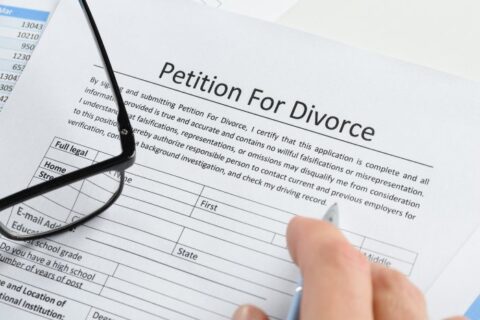Does Alimony Stop When You Retire?
Understanding Alimony Impact After Retirement
Retirement marks the start of a new chapter in your life. But for those paying alimony, entering retirement may raise an important question—does alimony stop when you retire? In short, alimony does not automatically stop when you retire, but many factors contribute to whether you’ll continue to pay. Michael Todd Rebuck, P.A. strives to make navigating alimony after retirement as straightforward as possible for his clients on Florida’s Treasure Coast. Here’s what you need to know about alimony law and retirement.

How Does Retirement Impact Alimony?
Alimony, also known as spousal support, is a financial obligation under family law to provide ongoing payments to a former spouse after a divorce. Its purpose is to ensure that the lower-earning spouse can maintain a standard of living similar to the one enjoyed during the marriage.
Retirement often comes with a reduced income as the paying spouse transitions from an active salary to retirement funds, pensions, or Social Security benefits. Because of this, retirement frequently leads the paying spouse to seek alimony modification.
Does Alimony Automatically Stop When You Retire?
Retirement does not automatically end an alimony obligation. Unless the original divorce decree specifies that alimony ends upon retirement, the paying spouse will need to file a request with the court to modify or terminate the obligation. Courts in Florida assess alimony on a case-by-case basis, and the circumstances surrounding retirement will play a key role in the decision.
What Impacts Alimony After Retirement?
There is no specific formula for determining alimony payments in Florida, even after retirement. Courts may look at the following factors to determine how retiring from work should affect alimony:
- Financial Circumstances—First and foremost, courts evaluate the financial situations of each spouse. This includes noting income from retirement accounts, Social Security benefits, and pensions, as well as expenses and lifestyle needs.
- Retirement Age—Courts consider the paying spouse’s age when they decide to retire. Early retirement does not necessarily absolve someone of their alimony obligations.
- Health Conditions—If the paying spouse is experiencing health issues that cause financial strain and limit their ability to work, this could influence the court’s decision.
- Original Alimony Agreement—The terms in your original agreement will determine if and how alimony can change upon retirement.
- Financial Needs—If the recipient spouse still relies heavily on the alimony payments to cover living expenses, the court may take this into account before modifying or terminating the support.
How Alimony Modification Works
Alimony law does not automatically end payments after retirement, but that doesn’t mean you have to pay forever. In some cases, an alimony attorney can help you file a petition for modification. Once you’ve filed to change your alimony order, you will need to provide comprehensive financial documentation and present a strong argument as to why alimony payments are no longer viable after retirement. An experienced lawyer can help you achieve the best outcome.
What Happens After Alimony Modification?
Even the most skilled alimony attorney can’t guarantee a specific outcome to a given case. However, filing for alimony modification after retirement often leads to one of these results:
- Reduced Payments—The court may lower the alimony payments to reflect the payer’s reduced income.
- Temporary Suspension—In some cases, courts may pause alimony payments to give the payer enough time to adjust to their new financial situation.
- Termination of Alimony—If the court determines that continued payments are no longer reasonable or necessary, alimony obligations may end.
- No Change—Sometimes, alimony and retirement don’t affect each other, and courts deem that the original alimony agreement should stay in place.
Consulting an Alimony Lawyer Is Essential
Navigating alimony modifications can be complex, especially when retirement is involved. Be sure to consult a skilled alimony lawyer as soon as possible. A professional can help you:
- Understand your rights and obligations under the law.
- Prepare and file the paperwork for modification requests.
- Advocate for your financial interests in court.
- Ensure compliance with legal procedures and timelines.
Learn More About Alimony From Michael Todd Rebuck, P.A.
Retirement brings major life changes, and if you’re paying alimony, it’s important to understand how this milestone affects your legal and financial obligations. While alimony doesn’t automatically stop when you retire, you have options to seek modifications or terminations based on your changing circumstances. If you’re on Florida’s Treasure Coast, Michael Todd Rebuck, P.A. is here to help you better navigate the alimony process. Schedule your consultation today.


